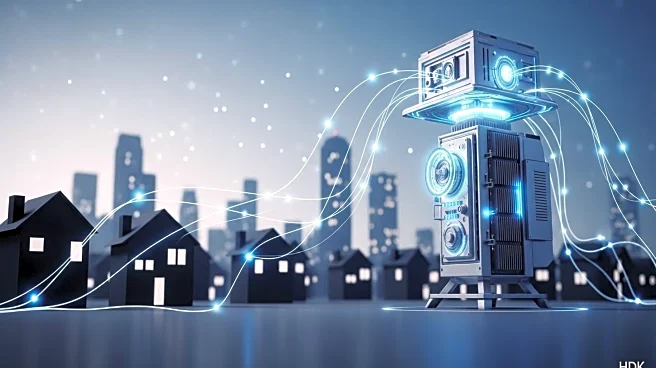What's Happening?
Electricity bills across the United States are increasing at a rate twice that of inflation, with utilities requesting $29 billion in rate hikes this year. This surge is largely attributed to the growing energy demand from hyperscalers, tech companies building AI data centers, which is projected to increase U.S. electricity demand by 128 GW by 2029. Of this, 93 GW is expected to support data centers. The increased demand is causing grid strain and capacity shortfalls, prompting some states to consider reviving coal plants or constructing new gas-fired power plants. A proposed solution involves data center operators funding residential upgrades, such as heat pumps and rooftop solar, to stabilize the grid and meet their energy needs.
Why It's Important?
The rising electricity costs are placing a significant financial burden on American households, particularly low-income families who spend nearly 18% of their income on energy. The proposed solution of data center operators funding residential upgrades could alleviate this burden by reducing energy bills and improving grid stability. This approach also supports climate pledges by reducing reliance on fossil fuels and promoting renewable energy sources. If implemented, it could lead to substantial health benefits and economic savings for households, while ensuring a reliable power supply for data centers.
What's Next?
The proposal suggests that hyperscalers could secure additional grid capacity by investing in household upgrades, potentially adding 30 GW of capacity nationwide. This would involve installing heat pumps in homes with inefficient electric systems, offering a cost-competitive and faster alternative to building new power plants. The plan also includes investing in home batteries and solar panels to further increase capacity. If adopted, this strategy could transform households into active participants in the energy infrastructure, contributing to a resilient and cost-effective all-electric grid.
Beyond the Headlines
The initiative to involve households in energy solutions highlights a shift towards decentralized energy systems, where consumers play a crucial role in grid management. This could lead to long-term changes in energy policy, encouraging investments in residential energy efficiency and renewable technologies. It also raises ethical considerations about the responsibility of large tech companies in addressing the environmental impact of their operations.









